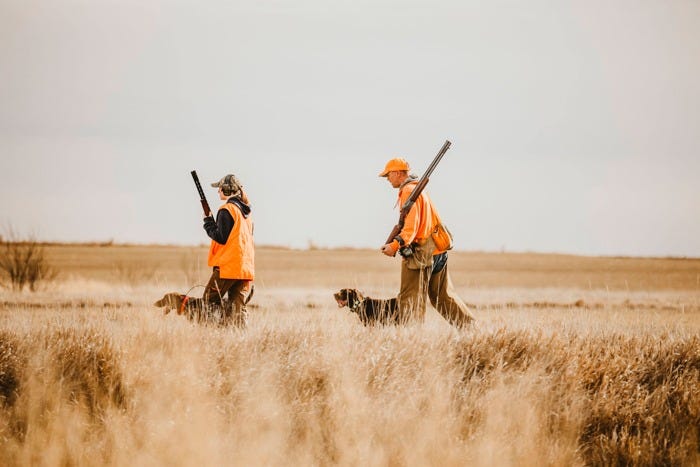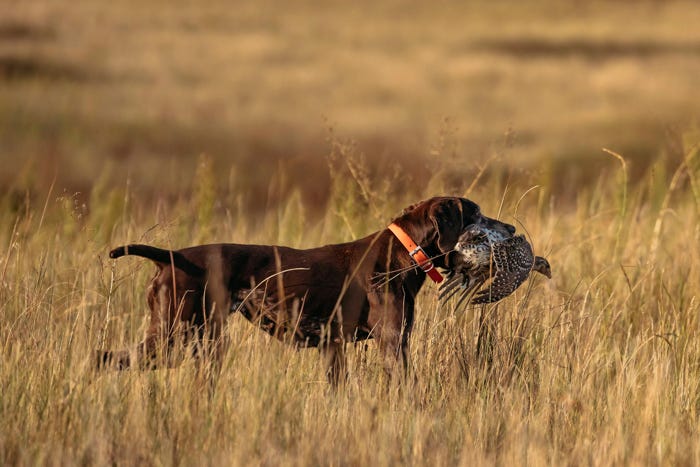Pedigree to Prairie
How great dogs and great people make the hunt
This story was written by Jeff Tucker, owner of Vanguard Gun Dogs in Advance, North Carolina. Jeff is photographed by the talented Christy Langston for our Fall cover with two beautiful German shorthaired pointers named Koko and Rose, and, in the photo above, with his daughter, Sadie. Jeff knows a thing or two about hunting with GSPs.
Let’s get into it.
Pedigree to Prairie
Story by Jeff Tucker • Photos by Christy Langston
It feels like magic to watch a dog tear across a native grassland, nose in the air as it searches for scent, then focused and intent once it closes in on a wild bird. If you’re lucky, you might remember all the moments that have woven together to allow the dog to do the only thing it wants to do, and feel pride in the part you played to make it possible. Hunting wild birds with an exceptional dog is an unforgettable experience, and most hunters who have done it will not let that memory fade.
But what goes into those magical prairie moments? From my experience there are three factors, without which none of it would happen: genetics, training, and relationships. The dogs I work with are German shorthaired pointers, and while there are other breeds equally capable of producing in the field, I’ll let their advocates sing their praises elsewhere.
Simply put, without proven genetics you are unlikely to get a good hunting dog. An untested pedigree could mean that your dog is gun shy, isn’t all that interested in birds, or doesn’t have the stamina and conformation required to run literal marathons, day after day, without tiring. Those qualities might get you a great pet (albeit one with very high energy), but a decent hunting dog won’t be in the cards no matter how well it’s trained. Truly excellent German shorthairs (and bird dogs in general) need to have a good nose, a staunch point, the desire to work, and the ability to track game and perform a thorough field search—and all this in eager cooperation with their handler.
Make no mistake, though. Great genetics don’t automatically make your dog a powerhouse in the field. For that you’ll need not only blood, sweat, and probably some tears, but also lots of hours devoted to training. If your dog finds a bird by instinct but then flushes it before you can get close and you’re left watching both the bird and your dog disappear over the horizon, that’s not going to be a good hunt. Your dog needs to know that it must always point, be steady through wing, shot, and fall, and retrieve to hand. Excellent cooperation during this process is important and recall is also imperative—you never know when your dog might encounter a rattlesnake, porcupine, skunk, or some other dangerous situation, and you want to be certain that your dog will return to you quickly no matter the circumstance.
If that all sounds difficult to achieve, it is.





